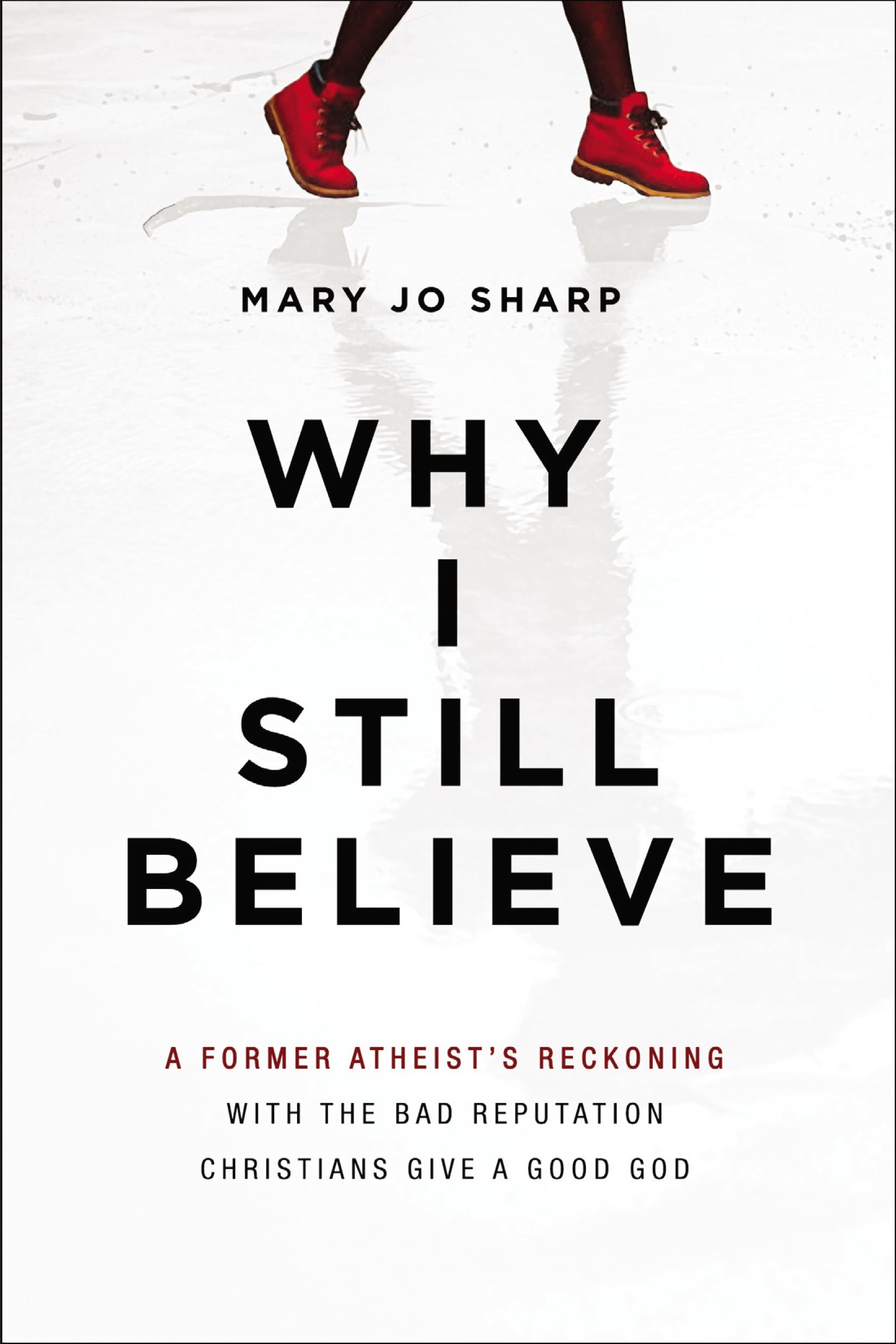3 Compelling Reasons a Former Atheist Chooses Christianity

Present-day Western culture teaches that there is no need for God. Science has explained away all the aspects of life that we previously ascribed to deity. Therefore, it has become a somewhat popular opinion that God is unnecessary for our enlightened modern minds.
This was the mantra that played in the background of my mind when I struggled with the judgmentalism and hypocrisy I saw within the church.
Do I really believe in God? Am I confident God has been disproven by our current knowledge of the universe? Why would I subject myself to a community full of hypocrites when there’s no need to believe in God anymore?
Yet, when I considered stepping away from the church and from my faith to return to my former atheism, there were some things that stood in the way of leaving Christianity behind.
Here a three reasons I could not walk away from belief in God:
1. A Belief in Right and Wrong
As I began to deconstruct my faith, I considered the hypocrisy of believers I witness in church: Christians who profess to believe in a moral standard to which they are accountable, but don’t live up to that standard.
One main factor in this issue was that my acknowledgement of Christian hypocrisy of relied upon my belief that some things were right and some things were wrong. It was good not to be a hypocrite, and it was bad to be a hypocrite.
But where was I getting the standard by which to make my judgment? If I don’t have a standard of goodness to say that something is ultimately right or wrong, such as God and his own perfect goodness, then where do I get such a standard?
The problem with stepping into atheism is that there is no ground for good and evil, right nor wrong.
As several atheist philosophers have said (including Jean-Paul Sartre, Friedrich Nietzsche, Bertrand Russell, and Richard Dawkins), the universe has at its base no good or evil; there’s no right or wrong, no justice or injustice, and no meaning or purpose. Rather, we have a universe void of all these things.
To atheists, the universe is built upon the blind, indifferent process of natural selection.
If the universe is void of these qualities, then though I might say things are good or evil, I cannot find a way to ground these ideas. Rather, I end up with something akin to my personal preferences, my likes and dislikes, not with a moral standard to which I am accountable.
But I cannot live as though the universe is void of moral qualities such as good and evil.
Every day I make choices based on what I think is right and wrong (or what I should or should not do), not just on what I prefer.
So, this was one area in which I couldn’t get past God as the standard, the objective point of reference, for my belief in good and evil as real things.
2. A Desire for Meaning, Purpose, Freedom, and Choice
In much a similar way, I could not ground human meaning, value, and purpose. If there is no meaning nor purpose in the universe at its base, and everything is a product of random mutations and chance, then everything that results from such a universe would also be void of ultimate meaning.
Random chance does not have the capacity or intention to give purpose nor value. There is no place to ground these concepts.
Some atheist thinkers have suggested that humans are reducible to their DNA, that everything the human does is the result of their own particular DNA configuration (see Richard Dawkins’ River Out of Eden).
Dawkins explains, “The universe we observe has precisely the properties we should expect if there is, at bottom, no design, no purpose, no evil, no good, nothing but blind, pitiless indifference...DNA neither knows nor cares. DNA just is. And we dance to its music.”
This is a deterministic view of human life in which there is no real choice nor freedom to human actions or thought. Without real choice or real freedom, concepts such as meaning, purpose, and value are robbed of any ultimate significance.
This lack of ultimate meaning, purpose, and value is another reason that atheism failed to provide a coherent explanation of the human experience. Interestingly, the atheists of the earlier 20th and late 19th centuries did not try to hide this fact, but rather embraced it as a reality they encouraged all humankind to embrace.
It’s the atheists of the late 20th and early 21st century that have kept the angst of a purposeless universe on the backburner of their ideology, away from the public eye.
3. An Inherent Need to Reason Truth
A third, and most basic area, was the problem of whether or not I can trust my own thinking skills. Some atheist organizations will use the word “reason” within their title in an attempt to convey that they do not have blind faith, but rather that they use their reasoning abilities to make decisions.
I began to look at what it meant to trust your reasoning abilities in an atheistic worldview. Once again, I found that there was a grounding problem, this time for something as basic as trusting your own ability to reason.
In the atheistic view, the universe is void of purpose or intentionality, and everything has arisen through the blind and unguided processes of natural selection. Natural selection is a survival mechanism, not a truth-making mechanism.
So, under atheism, my own ability to reason is the product of blind unguided processes, the aim of which is survival not truth. Therefore, how do I determine if I can trust my reasoning skills to get me to any truth at all? In an atheistic framework, I see no way to trust my reasoning.
For example, it has been postulated that belief in God arose in our species because it provides a means for survival through the consequent theistic ideologies of not murdering, not committing adultery, not coveting your neighbor’s possessions, and so forth.
However, atheists would say that this belief in God is also false. We can conclude, therefore, that the process of natural selection has produced a false belief in God. If natural selection produced at least one false belief, it is reasonable to expect that it has produced other false beliefs that were fit for our survival. There’s no way to know what is true and what is false, only what has allowed us to survive.
Atheism would therefore also be a byproduct of a survival mechanism, not a truth arrived at by trustworthy reasoning skills.
This glaring flaw in the logic of the atheistic worldview was a huge brick wall that I hit when attempting to find arguments against God’s existence.
Imperfect Christians Don’t Preclude the Existence of a Perfect God
Sometimes the church angered me to the point of wanting to leave it behind and hurt me to the point of never wanting to trust again. And while I don’t want to downplay the pain of these experiences, the truth of Christianity—and the realistic philosophical framework it provides—cannot be eradicated by the hypocrisy and judgmentalism of some Christians.
To step away from Christianity means to embrace a universe void of the grounding for the most basic of human experiences: finding ultimate meaning, purpose, and value in human life. It is a radically different worldview, with a radically different understanding of humankind.
Therefore, though I desired to walk away, I just could not do so based, in part, on the Christian philosophical framework to aptly and coherently explain the true human experience.
Photo Credit: ©GettyImages/dmbaker
Originally published November 05, 2019.






